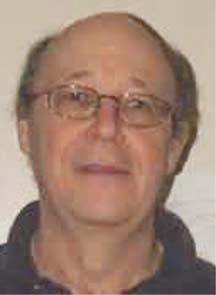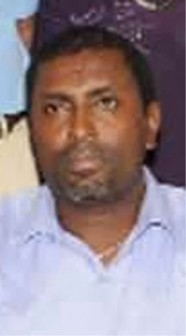By Cosmo Hamilton
Even as we have gone from BG to Blackberry, from post office call box to the iPhone, from Philco radio to plasma TV, it is as though time has stood still on the corner of Crown and New Garden streets where Demerara Cricket Club (DCC) has sat stoically for 100 years – an enduring symbol of discipline, determination, and dedication. In the lore of club cricket in Guyana the saga of DCC is as colourful as the charismatic characters that have represented this venerable organization or those who have formed just its intensely loyal fan base throughout the years. Fans in my time who would follow this team like the Pied Piper wherever they played.

Back in the 50’s and 60’s fanatics like Jack Waterloo, a private school teacher with his weather-beaten felt hat like a lid over his mischievous smile, who idolized legendary Guyana and West Indies batsman Rohan Kanhai, but thought that a prodigy who played for DCC named Clive Lloyd was just a ‘flash in the pan’ in his early days, even in 1963 when he scored over 900 runs in eight Case Cup matches. And characters like ‘Bow Tie’ who would be termed a dougla in local parlance, who once shouted at the late Guyana and West Indies opening batsman Glendon Gibbs as he grafted difficult bowling in the middle, “Hey Glendon, look like the only thing you wouldn’t die from is a stroke.”
Then there was Morgan, who flashed a toothy grin as he flaunted his vast knowledge of English players like Ken Barrington and Peter May and Tom Graveney and Freddie Trueman, among others. A Bajan named Wheeler would also be part of this motley crew. He did not particularly like his countryman Clyde Walcott who played club cricket for East Bank and British Guiana Cricket Club (BGCC) when he worked for Bookers Sugar Estates, and would deride him at every opportunity. But Wheeler himself would often be the subject of good-natured ridicule especially from ‘Bow tie’ – the heckler-in-chief who once said to him, “Hey Wheeler, Barbados is so small I hear the pork-knockers does go home for lunch”.

So this knowledgeable if eclectic group, often along with a couple of burly policemen named Duke and Mars who vociferously supported their ranks in the Police team, would engage in spirited discussions about cricket, local and international, and attract a sizeable following just behind the fence to the immediate left of the pavilion. And they would be as much of an attraction as the Case Cup match being played in the middle, maybe – DCC vs Police, or DCC vs BGCC, or DCC vs arch-rivals GCC, or DCC vs EICC (East Indians Cricket Club), or DCC vs Malteenoes.
History indicates that DCC was established in 1912 by a group of Portuguese businessmen as an alternative to the British dominated Georgetown Cricket Club (GCC), but membership was open to anyone after 1913. Through the early years these clubs just blocks down New Garden street from each other developed distinctly different profiles, with the Bourda club maintaining its colonial upscale exclusivity, while the Queenstown club entertained a middle class, multi-ethnic membership. If GCC was Guyana’s Lords – so to speak, where in attendance one had to be buttoned up and sophisticated, DCC was the Oval – the alternative iconic venue where one could relax and be irreverent.
DCC’s location in the midst of a residential community surrounded on all sides by colonial and modern type homes – with no room for physical expansion, lends charm and character to this relatively modest but storied sward. Some of the late lamented and living home grown players that have claimed this hallowed precinct as their field of dreams would include Berkeley Gaskin, brothers Robert Christiani and Cyril Christiani, Leroy Jackman, Babsie Dyer, Bruiser Thomas, Richard Hector, Colin Wiltshire, cousins Lance Gibbs and Clive Lloyd, Carlyle Miller, Vincent Mayers, Vibart Darjun, brothers Mark Harper and Roger Harper, and a plethora of classy senior cup campaigners like Ron Willock, Tapper Bouyea, Terry Cadogan and Horton Dolphin.
If this ground could talk it would speak of the twinkle-toed Robert Christiani who would dance down the pitch to spinners as he drove them out of their comfort zone. It would regale you with anecdotes of the extraordinary power of the young Lloyd who hooked, cut, and drove imperiously anyone and everyone to all parts of this prized piece of real estate – scorching the field, peppering the fences and homes beyond the boundary. And it would muse of the majesty of Colin Wiltshire’s on drives that seemed to caress every blade of grass on their way to the fence; it would relate stories of the barrel-chested bespectacled Ron Willock and beanpole left-arm Carlyle Miller- the medium-paced duo who would swing the new ball like a hammock particularly in the late afternoon, tormenting opposing batsmen with ball and banter.
A BGCC clubmate of mine named Brian Patoir, an exceptional leg-break googly bowler who represented British Guiana in the 50’s, affectionately – but perhaps with a touch of envy – referred to the DCC Case Cup team as – ten hooligans and a slugger – the slugger being hard-hitting lefthander Lloyd. This was a hard-nosed team with attitude not arrogance.
The club’s golden era would have spanned the 50’s and 60’s when they were the toast of the town and arguably the most successful team in senior cup cricket led by an astute, inspirational captain named Frederick Rudolph Wills. He was a gifted Guyana Scholar and attorney who returned from England to practice law in 1957 and was as dynamic as a tactician and leader of DCC as he was a criminal lawyer. Under Wills the team played with particular pride and passion. Half a century ago he would have been considered the patriarch of the club and one who set standards that have since sustained the organization.
In his eulogy of Wills in 1992, Lloyd extracted a quotation from his book “Living for Cricket” published in 1980 in which he wrote: ‘As a teenager I became very attached to Fred Wills, the DCC captain whom I imagine became a father figure to me. If he was not a great cricketer himself, he knew the game backwards.’ The former West Indies captain went on to credit Wills for much of his success as a leader.
The founding fathers of DCC are long gone and the complexion of the organization has changed from the turn of the 20th century to properly reflect the society. Now it is imperative that the President of the club Albert Mentore and his executive, and the inheritors of the 21st century like Chris Barnwell, the Christian brothers, Gajanand Singh, Travis Dowling and company, maintain its ideals of integrity and fair play and its tradition of excellence as the innings continues. And even in this age of dizzying technological development, they must extol the virtues of sports and simple club life, as well as the importance of club cricket as a right of passage, and continue to spread the gospel of discipline to the incoming family of young men and women.





